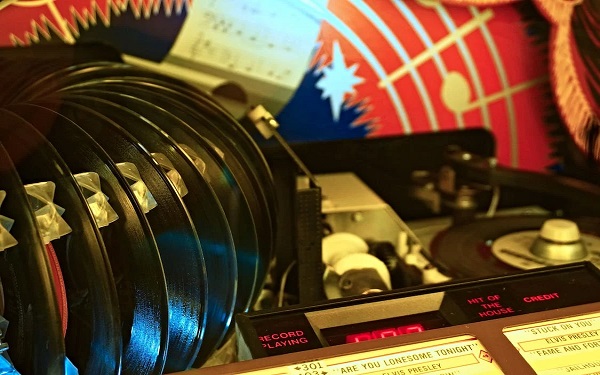This fundamental question is often overlooked. It will help you to realize your goal of being a long-term, successful poker player.
The most important decision that a poker player makes regarding where they will play poker is the one that has the greatest impact on their enjoyment and bankroll. A player can choose from four venues:
1) Online poker sites
2) Casinos/Local Poker rooms
3) Play home games with your family and friends
4) Fund-raising and charity events in your area
Each venue has its own pros and cons. While one venue might be the best for Player A, it may not be the best choice for Player B. Your personality, bankroll and skill level will determine the right venue.
Let’s take a closer look at each venue and talk about the differences between them. While I will speak in generalities that are consistent no matter where you live, you must realize that geography is an important factor in venue selection. Gambling laws can vary between different areas. Please make sure you research your local laws and follow them. Let’s now discuss online poker.
Online Poker
Online poker has seen a surge in popularity over the past few years. The Federal government has put restrictions on US players’ ability to transfer money to and fro poker sites. Poker players are facing serious problems due to these restrictions. Several player associations are working to combat them. It is unclear what the future holds for online poker laws. It is not possible to discuss the legalities of online gambling in this article. However, I urge all poker players and players to research the subject before they start playing online.
Online Poker Pros:
Online poker is great because you can play whenever and wherever you want. Poker Stars, Full-Tilt and Ultimate Bet are just a few examples of the sites you can find. You will find tens of thousands eager players online, 24 hours a days, 7 days a semaine. You will find a game that suits your needs whenever you are available.
Online play gives players the opportunity to play many different games. Online sites are available for those who want to get away from Texas Hold’em but still feel the need to play Omaha, Stud, Razz, Horse, and virtually every other game there is.
Online gambling is also a great option because you can choose the stakes that are most comfortable for you. You can play as low as one pennies per hand if you’re conservative or just starting out. You can play for thousands of dollars if you’re looking for adrenaline rush. There will be a variety of stakes available on the sites.
Online gaming sites allow you to play a lot of hands quickly and improve your game. Experienced players might play multiple games simultaneously. These players play an incredible number of hands every hour.
Cons of Online Poker
Online poker can quickly become addictive. Online poker addiction can lead to serious financial, psychological, and physical problems for players. A poker addict will often play all night and ignore his sleep needs. This can lead to emotional problems that eventually lead to stress in the home and work life of the player. Remember that poker is just as important to your family, friends, and career as a poker player.
Online players may be victims of online cheating. Poker sites use sophisticated software to monitor play and look for irregularities. While I believe that they have some success, there is no denying that cheating can continue without being caught. Problem for poker players is that they cannot be sure that they are not being cheated. Poker was buzzing last year after the media covered the Ultimate Bet and Absolute Poker scandals. Cheating can also occur between players when several players conspire to cheat on another player. This happens by using telephone communication during the hand. You are in a disadvantage if your opponent has more information on the hole cards than you.
Online poker is more convenient than offline poker. This means that a less skilled player will lose more of his bankroll online. A losing player will play more poker online, which means he will lose more long-term.
Casino Poker
This discussion will focus on full-service casinos, which you might encounter in Las Vegas and Atlantic City, as well as local Poker Rooms, which are often found at Kennel Clubs or Horse Racetracks or other PariMutual facilities. Although full-service casinos may have a larger and more sophisticated casino, Poker Rooms can provide similar services for poker players. The facility offers the tables, chips and dealers to play and the pit bosses to manage the game. Each provides a pleasant environment for players to enjoy. The ‘house’ may charge an hourly fee or rake the pots in exchange for these services.
The Pros of Casino Poker:
– Most casinos/poker rooms offer a friendly environment for players to enjoy their games. They realize that they have to compete for your business, so you will be treated well if you become a regular customer at the casino.
– The player can feel confident that the games will run smoothly. All staff, from dealers to servers of drinks, know that their job (and their tips!) is to provide excellent service for the players.
– Most card rooms and casinos are located in a nearby community and are usually open 24 hours a day, seven days a semaine. A player can go to the casino with a short notice and find lots of action. Texas Hold’em reigns supreme at casinos. However, other games can be offered if there are enough players to fill the table.
Cons of Casino Poker
Casinos can be expensive. Casinos have significant expenses and must recover these costs through a ‘rake. Card rooms may charge an hourly fee, usually $10-12 per player per hour. Others may take a percentage from each pot or a percentage from the total tournament entry fees. To be a long-term winner, a house rake of between 10-20% and more is normal. Good etiquette requires that players tip servers and dealers for their services. These tips can increase the cost of playing at casinos.
One of the downsides to poker is the possibility of being sucked in by a few regulars who are eager to take the new fish to their tables. The uninitiated player may be at disadvantage if they don’t know what the players are doing.
Home Poker Games
There are thousands of poker games being played every night between friends and families in America. You don’t need many supplies to host a poker game. These items can be found on many websites. The kitchen table is a good place to start, but you can eventually move up to a real poker table with drink holders, padding rails and a felt playing area. Next, you’ll need poker chips. A 500-count set of 11.5 gram chips (or more) will suffice for up to nine players. A set of 100% plastic playing card decks is the last and most important thing you will need to play home poker. For high-quality cards, expect to spend between $15-25 per set.
Home Poker Games
Home poker is a better option than other venues because you have the ability to choose and play with your friends. A group of three to four players with a strong core will usually decide to create a home poker game. They will also invite their family and friends to join them. This selection process almost guarantees a group that gets along with one another. There are very few chances of an obnoxious or loud player being invited to the game. You will have a better time playing in a harmonious game.
Home games can foster social networking that may lead to new professional relationships. It is possible to make a useful contact with an accountant, lawyer, contractor, or other professional. Poker.
Home games offer great opportunities for spouses, husbands, and fathers to play with their children. You can have some quality time together while you play poker.
Generally speaking, a home game takes very little, if any, ‘rake’. This means that the money goes to the players and stays there!
Cons of Home Poker Games
Do not be fooled by the idea of hosting a home party. As the host, it is important to be available to answer calls, provide parking, and clean up afterwards.
Home game poker can be problematic because it is against the law in certain areas to gamble money while you play. It is important to research your local laws and follow them.
In the worst case scenario, there may be a dispute in the game of cards. This could lead to a broken friendship or hurt feelings. Respect for each other is essential and everyone must be sensitive to one another’s needs.
Charity/Fund Raising Poker
Many well-known charities have taken to hosting poker tournaments in these difficult economic times to raise much-needed funds. Private schools even host poker games in order to increase their scholarship funds. These events can be supported by a poker player who wants to give back to the community.
Pros of Charity/Fund Raising Poker
– Charity tournaments are great social events that bring together many poker players to support the cause. It is easier to pay an entry fee than to write a donation check.
– These events are low in skill. Many players see playing good poker as secondary to having fun and supporting a good cause. This mentality allows the skilled player to “clean out” at the expense social players. The payouts can vary depending on how large the tournaments are. A $60 entry fee could be converted into a $1,000 win day.
Cons of Charity/Fundraising Poker
These types of poker games are plagued by poor event management. Serious players can easily become annoyed when tournaments start late or are seated with inexperienced dealers. Fund raisers are prone to violations of the rules and etiquette.
These events can have a high ‘rake’. The primary reason a charity hosts the game is to raise funds. These games are not uncommon and a rake of 25-40% can be expected. This is unacceptable for a player looking to increase his bankroll.
One caution: These games are not legal. Charities often think they are exempt from gambling laws, but the sheriff isn’t always so sure! Make sure you do your research before participating in fund-raising activities. This will allow you to make informed decisions.
Summary
Let me reaffirm my original point that the decision of where to play poker is the most important one a player has to make. It will have the biggest impact on players’ bankrolls. There is no right or wrong answer. You must choose the best venue for you. I believe that a player who plays occasionally and wants to have fun should go to a casino to enjoy the service and atmosphere. If you are looking to increase your bankroll, however, I recommend playing a few home games that have low or no rake. These games offer the best chance to make long-term money.
Go play poker now!











